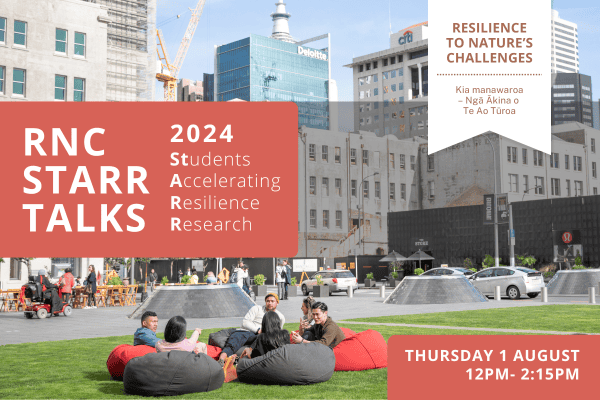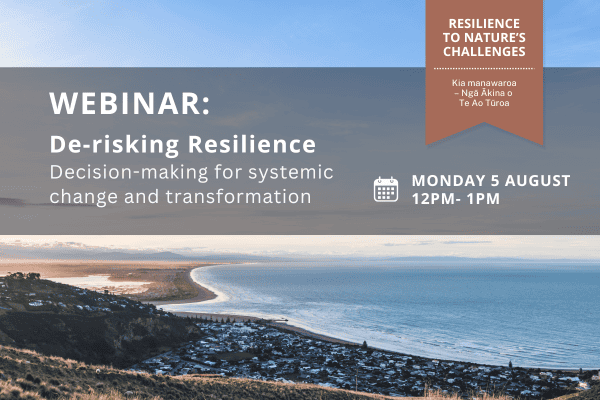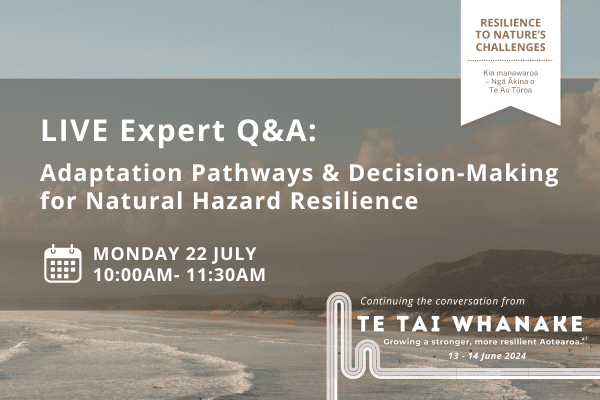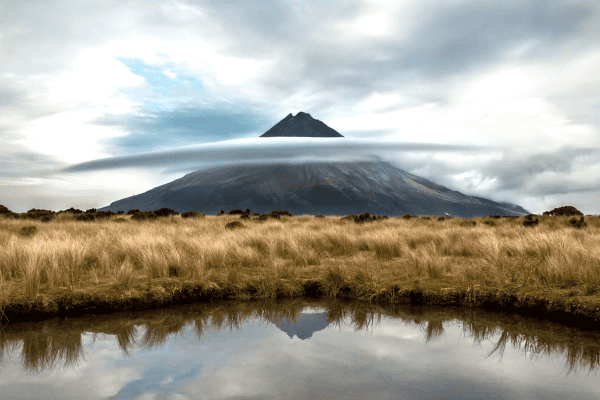Use one, some or all the filters below to explore our resources.
Know what you are looking for? Type below
Or, use our filtered search by selecting as little or as much as you like.
Tracing tsunamis through history
Weaving whakapapa and science together to trace tsunami through history.
Using simulated earthquakes to prepare for the next ‘big one’
'Synthetic' earthquakes are helping scientists understand Aotearoa's full earthquake cycle, and what the next big damaging quake might look like.
He Ekenga Ngaru – Māori community solutions to climate retreat and adaptation
Developing a community response to the Parliamentary inquiry into climate adaptation.
New Zealand’s Changing Coastline
How our researchers are using aerial and satellite imagery to determine how NZ's coasts are changing and identify erosion hotspots.
E Oho! Awakening Te Ao te Aroā Mobilising for Action at Ohaki Pā
Te Ao Te Aroā (or the world according to Aotearoa New Zealand) is imagining the world awakened, and changing trajectory, toward regeneration and hope.
New landslides tool helps in Cyclone Gabrielle response
We've helped GNS Science develop a new landslides modelling tool that was used in the response phase to Cyclone Gabrielle.
Clifton to Tangoio Coastal Hazards Strategy
Peter Beaven explains the Clifton to Tangoio Coastal Hazards Strategy 2120 and the role of the Living at the Edge team.
What are impact-based forecasts and warnings?
Impact-based forecasts and warnings describe what the weather has the potential to DO, making warnings more meaningful for people trying to prepare.
Pyroclastic flow experiments to improve volcanic hazard models
Large-scale experiments are providing new insights one of the most dangerous volcanic hazards so we can better predict their impacts and behaviour.



